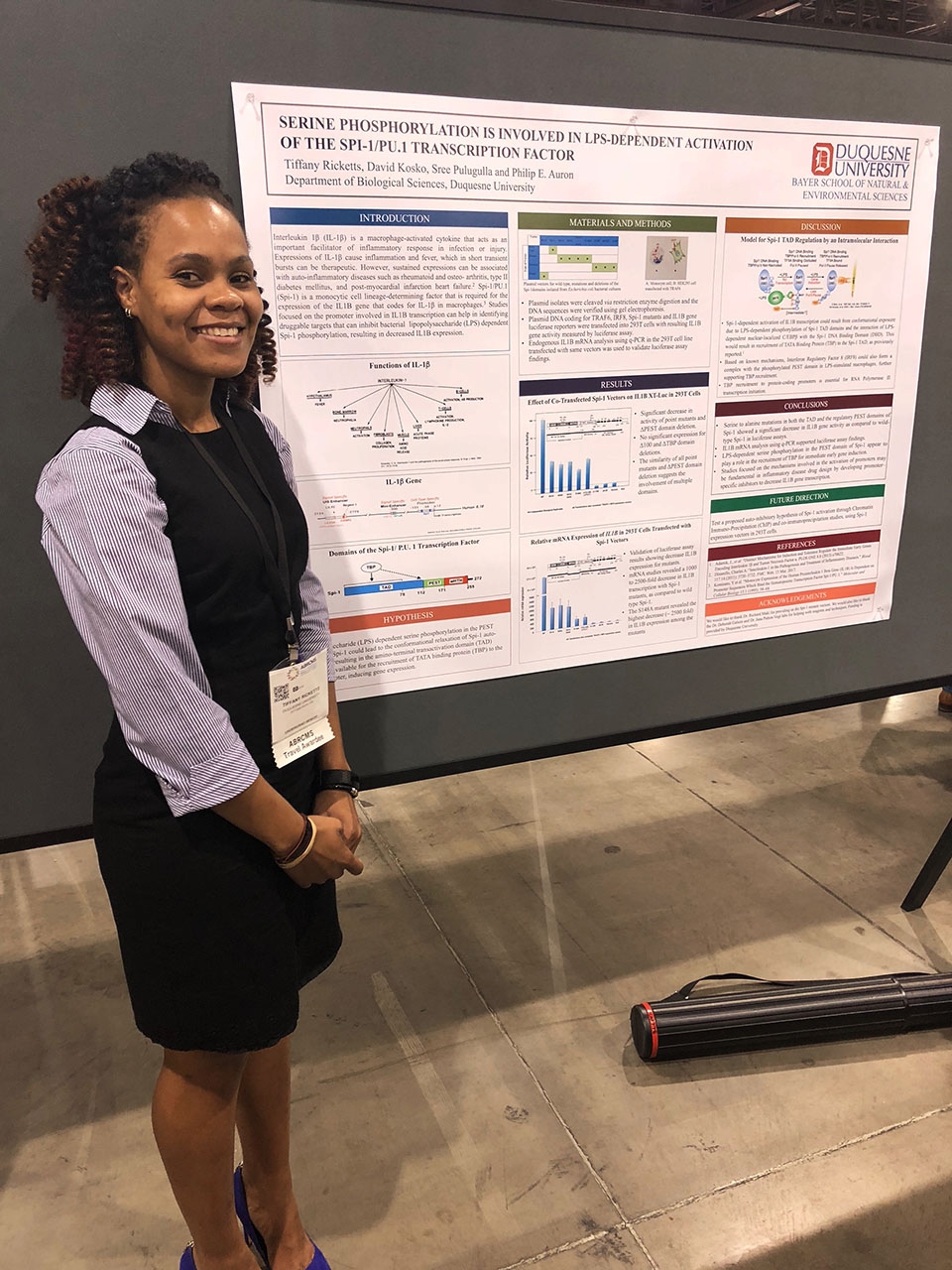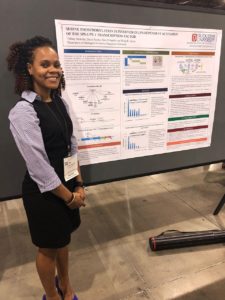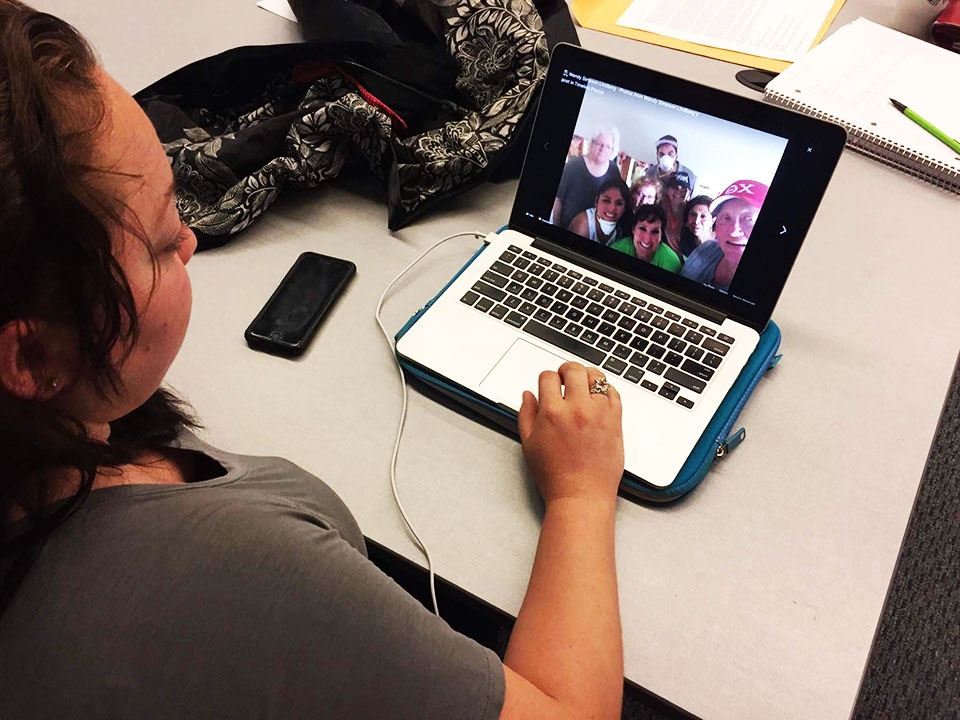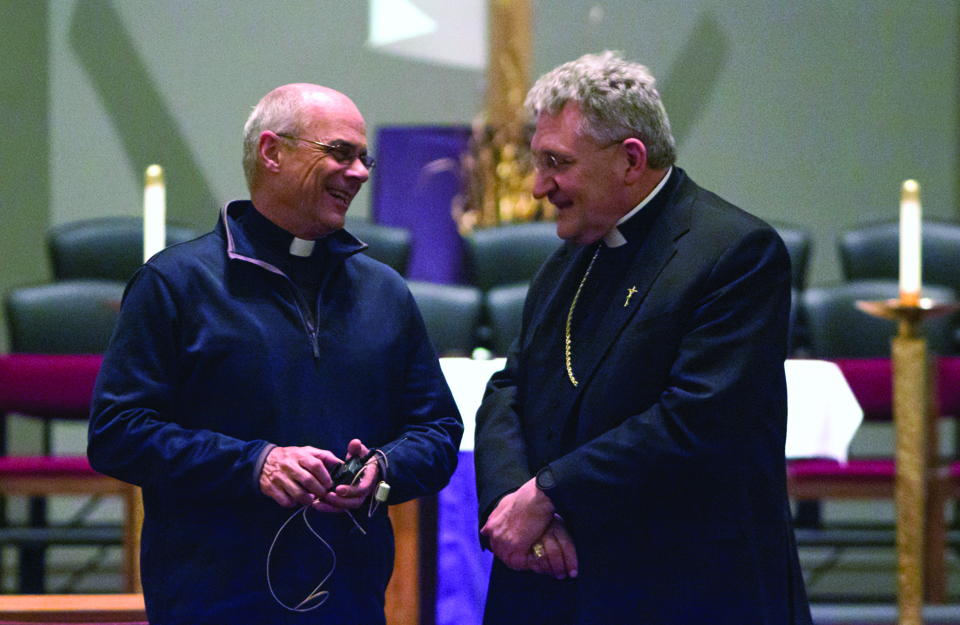
Tiffany Ricketts, a senior biochemistry major, presents at the Annual Biomedical Research Conference for Minority Students. Ricketts enjoyed the event.

Tiffany Ricketts, a senior biochemistry major, presents at the Annual Biomedical Research Conference for Minority Students. Ricketts enjoyed the event.
Hallie Lauer | Layout Editor
11/30/17
Two Duquesne students recently traveled to Phoenix, Arizona to present their research in front of 1,800 plus students from 350 colleges and universities at the Annual Biomedical Research Conference for Minority Students (ABRCMS).
Senior biochemistry major Tiffany Ricketts and junior environmental science major Kelsey Coates were both chosen to participate in the conference based on abstracts that they submitted over the summer.
The ABRCMS website describes the conference as “one of the largest communities of underrepresented minorities in science, technology, engineering and mathematics.”
The 2017 conference was hosted on Nov. 1 – 4.
Ricketts’ poster was entitled “Serine Phosphorylation is Involved in LPS-Dependent Activation of the Spi-1/P.U. 1 Transcription Factor.” Coates gave a presentation on GIS Mapping of Open Spaces for Community Garden Development in Pittsburgh’s Low-Income Neighborhoods, which is a topic she completed her research on over the summer and updated for this conference.
“It was encouraging for me to see so many young minority students being involved in research that is often directly related to minority communities,” Coates said.
The theme of this year’s conference was Promoting Change and Transformation, according to the ABRCMS website.
The students also had mentors to help them along the way.
“I [also] got assistance from the Auron lab to revise and rehearse my poster presentation,” Ricketts said.
The conference not only offers an opportunity for presenters to observe others’ research, but also to network.
“There were lots of opportunities for me to learn about the research that others were doing at the undergraduate, post-baccalaureate and graduate level as well as being able to speak … with professionals in specific fields in academia, industry or government,” Ricketts said. “I made connections with a lot of institutions regarding their summer research programs and got to learn about a lot of professional societies that offer membership to undergraduate students.”
To the two students who attended, this was not just a platform for them to present their research on.
“This conference also has the added incentive of being recruited by graduate institutions and to learn what each school has to offer if one is interested in pursuing a professional or graduate degree,” Ricketts said.
“For minorities like me, that includes a diverse environment where other people look like me.” Coates said. “ABRCMS proved to me that I could establish myself as a scientist despite any barriers just like many women of color have done before me. “
Aside from the poster presentations, there were also different speakers and presentations for the students to attend.
“[The conference] is an opportunity for minority students to network, to get feedback, and to see what other students are also doing,” said Plaxedes Chitiyo, a visiting assistant professor in the Bayer school and Coates’ mentor.
Coates added that she also attended “professional development sessions, networking events and plenary meals.”
These plenary meals included speakers from a variety of different universities and institutes, the speeches covered a variety of topics from all areas of science, including behavioral science.
“The conference emphasized the importance of working hard in school, earning advanced degrees, building your own community of support and getting lots of research experience,” Coates said. “I would recommend that all undergraduate science majors get involved with research if possible as it can strengthen your desire to be apart of your scientific community.”




